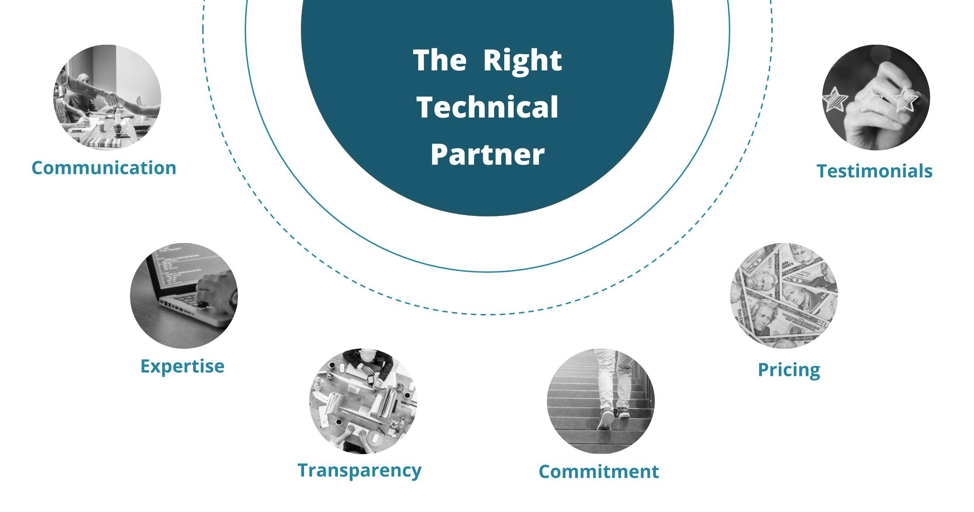
Hospitality technology companies specialize in providing innovative solutions tailored to the unique needs of the hospitality industry. These companies are crucial in revolutionizing guest experiences, streamlining operations, and maximizing revenue for hotels, resorts, restaurants, and other establishments.
They offer diverse services, including property management systems, customer relationship management software, point-of-sale systems, online booking platforms, and revenue management tools. By leveraging technology, hospitality businesses can automate processes, improve efficiency, and stay competitive in a rapidly evolving market.
From enhancing guest interactions to optimizing backend operations, hospitality technology companies empower businesses to deliver exceptional service and create memorable experiences for their guests.
Importance of Technology in the Hospitality Industry
Technology shapes the hospitality industry, driving innovation, efficiency, and guest satisfaction. In today’s digital era, technology is both a convenience and a necessity for hospitality businesses to thrive. From online booking systems and mobile check-ins to advanced analytics and personalized services, technology streamlines operations and enhances the overall guest experience.
It enables hotels, restaurants, and resorts to efficiently manage reservations, streamline communication, and personalize services based on guest preferences. Moreover, technology facilitates marketing efforts, allowing businesses to reach a wider audience and engage with customers effectively. By embracing technology, the hospitality industry can stay ahead of evolving consumer trends, improve operational efficiency, and deliver memorable experiences that keep guests returning.
Key Features and Services Offered by Hospitality Technology Companies
Hospitality technology companies offer comprehensive services and features tailored to the industry’s unique needs. These companies specialize in providing solutions such as property management systems (PMS), customer relationship management (CRM) software, point-of-sale (POS) systems, online booking platforms, and revenue management tools.
The key features of these offerings include seamless integration with existing systems, robust reporting and analytics capabilities, mobile compatibility for on-the-go access, and scalability to accommodate businesses of all sizes. Additionally, hospitality technology companies provide training and support services to ensure smooth implementation and ongoing optimization.
By leveraging these advanced technologies, hospitality businesses can streamline operations, enhance guest experiences, and drive sustainable growth in today’s competitive market landscape.

Top Hospitality Technology Companies in the Industry
Several companies are industry leaders in the competitive hospitality technology landscape, setting innovation and excellence standards. Among these top players is Oracle Hospitality, renowned for its comprehensive solutions spanning property management, guest services, and analytics.
Amadeus Hospitality offers cutting-edge technology solutions tailored to the unique needs of hotels and accommodations worldwide. Sabre Hospitality Solutions is another key player, providing innovative software and services to streamline operations and enhance guest experiences.
Additionally, Agilysys is recognized for its innovative solutions in property management, POS systems, and guest self-service options. These top hospitality technology companies continue to drive advancements in the industry, empowering businesses to deliver exceptional service and stay ahead in a rapidly evolving market.

Case Studies: Success Stories of Hospitality Technology Implementation
Case studies serve as compelling testimonials to the transformative power of technology in the hospitality industry. These success stories highlight how innovative solutions from hospitality technology companies have driven tangible results for businesses.
From improving operational efficiency and guest satisfaction to increasing revenue and market share, case studies showcase the real-world impact of technology implementation. Through detailed analysis and measurable outcomes, these stories demonstrate how hospitality businesses can leverage technology to overcome challenges, seize opportunities, and achieve sustainable growth in today’s dynamic market landscape.
Emerging Trends in Hospitality Technology
Emerging trends in hospitality technology are reshaping the industry, offering innovative solutions to meet evolving consumer demands. From adopting cloud-based platforms and mobile technologies to integrating artificial intelligence (AI) and data analytics, these trends are revolutionizing how hospitality businesses operate and engage with guests.
Contactless solutions, virtual experiences, and sustainability initiatives are also gaining traction, reflecting the industry’s commitment to convenience, personalization, and environmental responsibility. By embracing these emerging trends, hospitality businesses can stay ahead of the curve and deliver memorable experiences that meet the expectations of today’s tech-savvy travellers.
Challenges Faced by Hospitality Technology Companies
Hospitality technology companies encounter various challenges to innovate and serve the industry effectively. Cybersecurity threats pose a significant concern, as data breaches can compromise sensitive guest information and damage a brand’s reputation. Maintaining compliance with evolving regulations also presents a complex task, requiring constant vigilance and adaptation.
The rapid pace of technological advancement also presents challenges, as companies must continuously innovate to stay relevant and competitive. Furthermore, ensuring seamless integration with existing systems and addressing clients’ diverse needs can pose logistical and operational challenges for hospitality technology companies.

Future Prospects and Innovations in Hospitality Technology
The future of hospitality technology is brimming with exciting prospects and innovative advancements poised to redefine guest experiences. Technologies such as virtual reality (VR) tours, voice-activated assistants, and artificial intelligence (AI) will continue to enhance personalization and efficiency in the industry.
Sustainable practices and eco-friendly initiatives will also gain momentum, reflecting a growing emphasis on environmental responsibility. Contactless solutions and mobile integrations will further streamline operations and improve convenience for guests. As the industry embraces these innovations, hospitality businesses can anticipate more significant opportunities for growth, differentiation, and delivering exceptional service in an ever-evolving landscape.
Tips for Choosing the Right Technology Partner
Selecting the right technology partner is pivotal for hospitality businesses seeking to leverage technology effectively. Prioritize partners with a proven track record of reliability, scalability, and industry expertise. Consider factors such as compatibility with existing systems, robust customer support, and future-proof solutions.
Evaluate the partner’s reputation, client testimonials, and case studies to gauge their effectiveness. Assess the partner’s commitment to innovation, regulatory compliance, and security standards. Collaborating with a trusted technology partner ensures seamless integration, optimal performance, and ongoing support, empowering businesses to maximize the value of their technology investments.

Integration of Technology in Different Aspects of Hospitality
Technology integration permeates various facets of the hospitality industry, enhancing efficiency and guest experiences. From front-of-house operations to back-office functions, technology optimizes processes and streamlines communication. Property management systems (PMS) facilitate seamless reservations and guest services, while point-of-sale (POS) systems streamline transactions and inventory management.
Mobile apps and self-service kiosks offer convenient options for guests, reducing wait times and enhancing satisfaction. Additionally, data analytics empower businesses to personalize marketing strategies and anticipate guest preferences. By embracing technology across all aspects of hospitality, companies can deliver exceptional service, maximize revenue, and stay ahead in a competitive market.
Impact of Technology on Customer Experience
Technology profoundly influences customer experiences in the hospitality industry, revolutionizing interactions and expectations. From personalized booking platforms to digital concierge services, technology enhances convenience and customization for guests. Mobile apps enable seamless check-ins, room customization, and real-time communication with staff, fostering a sense of control and connection.
Moreover, data analytics empower businesses to anticipate guest preferences and tailor offerings accordingly, enhancing satisfaction and loyalty. By leveraging technology to deliver streamlined processes and personalized interactions, hospitality establishments can elevate customer experiences, foster long-term relationships, and differentiate themselves in a competitive market.
Sustainability and Green Technology in the Hospitality Sector
Sustainability and green technology are gaining prominence in the hospitality sector, reflecting a growing commitment to environmental responsibility. Hotels, resorts, and restaurants increasingly adopt eco-friendly practices and invest in sustainable technologies to minimize their ecological footprint.
Green initiatives include energy-efficient lighting, water conservation measures, waste reduction strategies, and renewable energy solutions. Sustainable sourcing practices and eco-friendly amenities also contribute to a more environmentally conscious guest experience. By embracing sustainability and integrating green technologies, hospitality businesses reduce operational costs, enhance their brand reputation, and contribute to a healthier planet.
Training and Support Provided by HTC
Hospitality technology companies prioritize training and support for seamless implementation and optimal solutions. They offer comprehensive training programs tailored to the specific needs of their clients, covering system functionalities, best practices, and troubleshooting techniques.
Additionally, dedicated support teams provide ongoing assistance and guidance to address any issues or concerns that may arise. Online resources, user manuals, and video tutorials enhance accessibility and knowledge sharing. By investing in training and support services, hospitality technology companies empower their clients to leverage technology effectively and maximize the benefits of their solutions.
Regulatory Compliance and Security in HTC
Regulatory compliance and security are paramount in hospitality technology, ensuring the protection of guest data and adherence to industry standards. Hospitality technology companies prioritize compliance with regulations such as the General Data Protection Regulation (GDPR) and Payment Card Industry Data Security Standard (PCI DSS).
They implement robust security measures, including encryption protocols, access controls, and regular security audits, to safeguard sensitive information from cyber threats and breaches. By maintaining regulatory compliance and prioritizing data security, hospitality technology companies instill trust among customers and uphold the integrity of the hospitality industry.

Conclusion
In conclusion, the rapid evolution of technology continues to reshape the landscape of the hospitality industry. Hospitality technology companies drive innovation, enhance guest experiences, and streamline business operations worldwide. From top-notch solutions to personalized services, technology empowers hospitality establishments to stay competitive and meet the ever-changing demands of modern travellers.
Despite challenges such as cybersecurity threats and regulatory compliance, the future of hospitality technology holds immense promise for sustainable growth and unparalleled guest satisfaction. By embracing emerging trends and leveraging innovative technologies, the hospitality industry is poised for a future filled with endless possibilities.
What role does data analytics play in hospitality technology?
Data analytics enables hospitality businesses to gain valuable insights into guest preferences, booking patterns, and operational performance, empowering them to make data-driven decisions and optimize business strategies.
Are hospitality technology solutions scalable for different types of establishments?
Yes, most hospitality technology solutions are designed to be scalable and customizable to meet the unique needs of hotels, resorts, restaurants, and other hospitality establishments, regardless of size or complexity.
How can hospitality businesses ensure data security and compliance with regulations?
Hospitality businesses can partner with reputable technology providers that prioritize data security and compliance with industry regulations. Implementing encryption protocols, access controls, and regular security audits can help mitigate risks and ensure regulatory compliance.
What are some emerging trends shaping the future of hospitality technology?
Emerging trends in hospitality technology include the adoption of contactless solutions, the integration of AI and machine learning, the rise of virtual experiences, and the emphasis on sustainability and eco-friendly practices.







